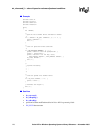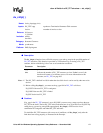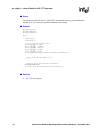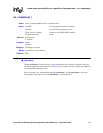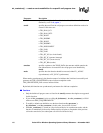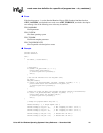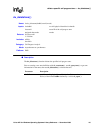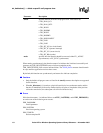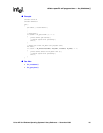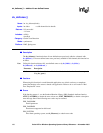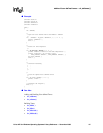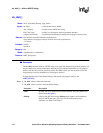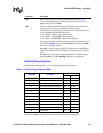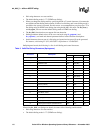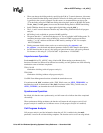
184 Voice API for Windows Operating Systems Library Reference — November 2003
dx_deletetone( ) — delete a specific call progress tone
When running asynchronously, the function returns 0 to indicate that it initiated successfully and
generates the TDX_DELETETONE event to indicate completion or the
TDX_DELETETONE_FAIL event to indicate failure. The TONE_DATA structure should remain
in scope until the application receives these events.
By default, this function runs synchronously and returns 0 to indicate completion.
!
!!
! Cautions
• Only the default call progress tones as listed in the toneid parameter description are supported
for this function.
• When dx_deletetone( ) is issued on a physical board device in asynchronous mode, and the
function is immediately followed by another similar call prior to completion of the previous
call on the same device, the subsequent call will fail with device busy.
!
!!
! Errors
If this function returns -1 to indicate failure, use ATDV_LASTERR( ) and ATDV_ERRMSGP( )
to retrieve one of the following error reasons:
EDX_BADPARM
invalid parameter
EDX_SYSTEM
error from operating system
EDX_TONEID
bad tone template ID
toneid specifies the tone ID of the call progress tone. Valid values are:
• TID_DIAL_LCL
• TID_DIAL_INTL
• TID_BUSY1
• TID_RNGBK1
• TID_BUSY2
• TID_RNGBK2
• TID_DISCONNECT
• TID_FAX1
• TID_FAX2
• TID_SIT_NC (no circuit found)
• TID_SIT_IC (operator intercept)
• TID_SIT_VC (vacant circuit)
• TID_SIT_RO (reorder)
mode specifies how the function should be executed, either EV_ASYNC
(asynchronous) or EV_SYNC (synchronous)
Parameter Description



